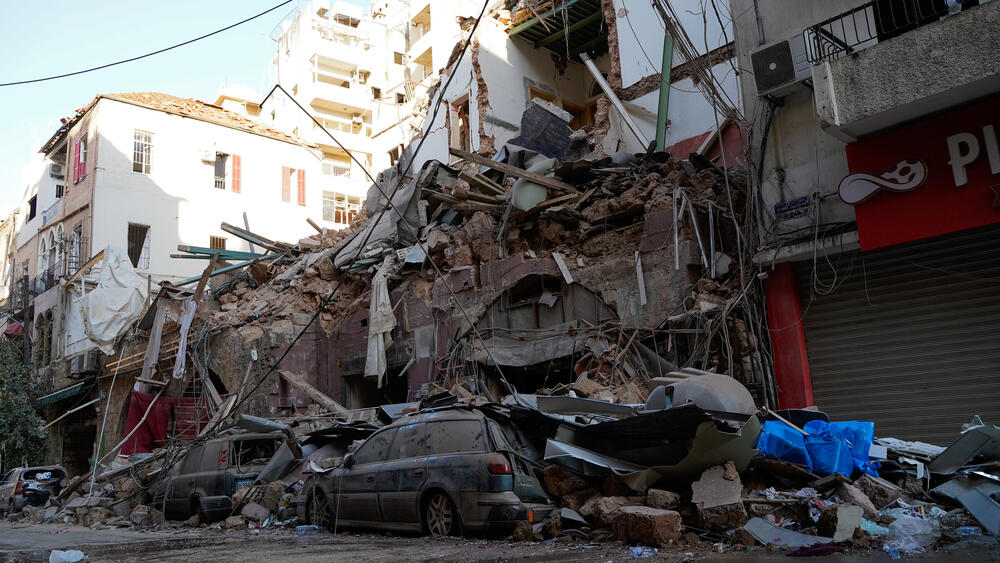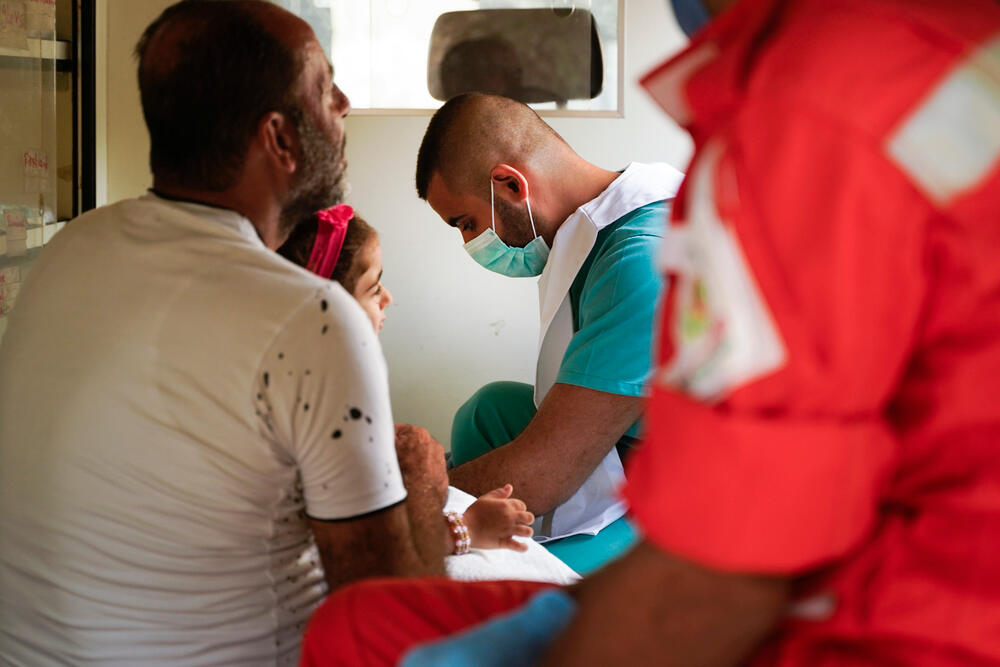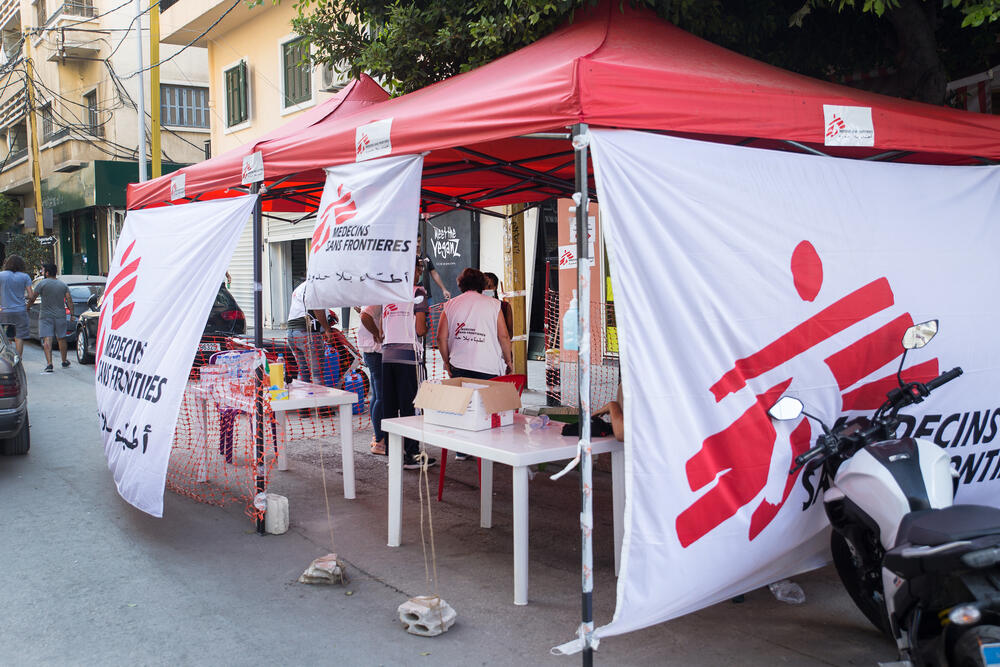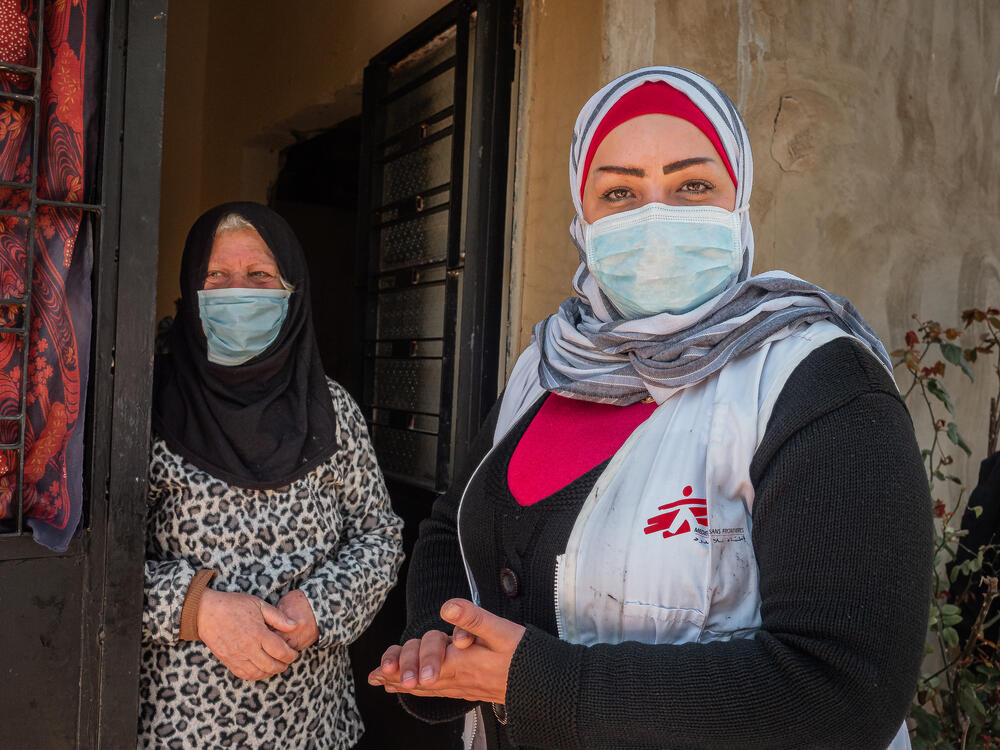Beirut blast: One year on, the situation in Lebanon has only got worse
Lebanon has been in a state of emergency since late-2019, rocked by an economic crisis, political and social instability, and hit hard by the COVID-19 pandemic. On top of these, on 4 August 2020, came the devastating “Beirut explosion” that tore through the capital city.
One year later, things have only got worse in Lebanon.
The country is in increasing need of humanitarian aid and half of all people now live in extreme poverty, barely able to afford food or medicine.
The cost of health
Fawziyya Al-Sahili is one of them. Today, she stands in her kitchen in northeast Lebanon stirring a vegetable stew.
“My neighbours brought me this meal yesterday, otherwise we wouldn't have any fresh vegetables,” she says.
“We haven't eaten meat for a year. With my son's salary we can only afford bread, beans and lentils. That's the way it is now.”
The 64-year-old has high blood pressure and diabetes and needs to eat a healthy diet with lots of fruits and vegetables. But these foods are often out of reach for her and her family.
One of her sons works in a shop where he earns 10,000 Lebanese pounds each day – less than $1 USD at today’s informal exchange rate – while her other son is unemployed. The three of them live together in an unfinished house that they can’t afford to complete.
Fawziyya and her family make up just a small part of the statistics. Half of Lebanon’s people are now living in extreme poverty.

Help us prepare for the next emergency
However, for the past two years, she has visited an MSF’s clinic in the northern town of Hermel. Here, she has been able to have regular check-ups and collect the insulin and other medications that she needs to control her health conditions.
“People have to decide whether to spend their money on food or drugs. The prices of both are up to five times what they used to be."
After the explosion
On 4 August 2020, this small country on the eastern shores of the Mediterranean – already struggling under the weight of multiple crises – was the scene of the catastrophic Beirut explosion.
The massive blast in the port area of the city had devastating effects: close to 200 people were killed, more than 6,000 were injured and tens of thousands lost their homes.
It also destroyed a number of crucial public facilities, including hospitals, and badly damaged the central warehouse of the health authority. This disrupted access to medicines, especially for elderly people and patients with chronic diseases – patients like Fawziyya.
In the wake of the explosion, MSF teams donated first aid kits to the Lebanese Civil Defense and medical supplies and masks to the Lebanese Red Cross.
At the same time, MSF teams in three locations – Karantina, Mar Mikhayel and Khandak – treated more than 1,800 patients for wounds caused by the blast and 4,500 patients with chronic diseases who needed urgent medical support.
MSF teams also went door-to-door in hard-hit areas to assess people’s needs. They installed water tanks and distributed water purification and hygiene kits, while also boosting psychosocial support services.
Soon after, in the weeks following the explosion, several public hospitals were close to full capacity due to high numbers of patients with COVID-19.
People injured in the explosion had rushed to reach hospitals unable to take preventative measures as coronavirus was the least of their worries. With numbers of COVID-19 patients rocketing, Lebanon was then put under lockdown for several weeks.
Even before the pandemic, the public health system faced regular bottlenecks in drugs and medical supplies as a result of the economic crisis.
After the virus arrived in Lebanon, the situation grew even worse.
Shortages of medicines
One year after the Beirut explosion, people’s need for medical and psychological help is still enormous. At the same time, a visit to the doctor has become a luxury for many people thanks to the high cost of private healthcare.
“The health system in Lebanon is highly privatised so more and more people cannot afford medication or to see a doctor,” says Hammoud al-Shall, MSF assistant project coordinator.
“People have to decide whether to spend their money on food or drugs. The prices of both are up to five times what they used to be."
Fawziyya has experienced this firsthand. She needed pain medication but found it impossible to get hold of even the most basic drugs.
“I fell and then I had such a headache,” she says.
“I wanted to buy paracetamol, but the pharmacist didn't have it. We tried three other pharmacies, but it was nowhere to be found. The drug is no longer available in Lebanon.”
Such shortages of medications are challenging, even for organisations like MSF. It’s difficult for local companies to get medicines into the country, so MSF teams now import the most essential ones themselves.
The escalating fuel crisis has also increased transportation costs, affecting both stocks of medical supplies and patients trying to reach care in the first place.
An uncertain future
Many people in Lebanon – both Lebanese and refugees – already struggle with stress and psychological trauma connected with war or displacement. Now, deteriorating living conditions are creating further concerns and hurting their mental health. High numbers of patients are seeking psychological support from MSF for depression and anxiety.
Fawziyya worries about her family’s future, too, particularly about her son who is out of work. He also attends MSF’s clinic in Hermel, where he receives psychosocial support.
The meal now ready, Fawziyya sits on the carpet with plates of rice, white bread and vegetable stew in front of her. Her anxiety about the future is ever-present, but she has not lost all hope yet.
There is solidarity between Lebanese people, and she feels supported by her community. Not just the neighbours who bring her food, but the social workers and the doctors in MSF’s clinic – where her family can still go to get the medical and psychological care that they need, for free.
MSF in Lebanon
In its heyday, Lebanon was referred to as the Switzerland of the Middle East because of its financial power and diversity. Today, the country is struggling to cope.
Civil war in Syria has put a huge strain on its neighbours, including Lebanon, which now hosts over a million refugees – the most per capita in the world. The devastating explosion that struck Beirut in August 2020 has put the country under extreme strain.
Médecins Sans Frontières/Doctors Without Borders (MSF) has been working Lebanon since 1976, when we began our response to the 15-year civil war. Today, we are helping refugees, many of whom live in deplorable conditions with their most basic needs unmet.



